
Yurii Illienko
Nacimiento : 1936-05-09, Cherkasy, Ukrainian SSR, USSR [now Ukraine]
Muerte : 2010-06-15
Historia
Yuri Illienko (18 July 1936 – 15 June 2010) was a Ukrainian film director and screenwriter. He directed twelve films between 1965 and 2002. His 1970 film The White Bird Marked with Black was entered into the 7th Moscow International Film Festival where it won the Golden Prize.
Illienko was one of Ukraine's most influential filmmakers. His films represented Ukraine and what was happening to it. His films were banned in the USSR for their suspected anti-Soviet symbolism. Only in the recent years have his films been re-released and open to the public.
Illienko was born in Cherkasy in 1936 but during World War II his family was evacuated to Siberia while his father was in the Red Army. He graduated high school in Moscow and Gerasimov Institute of Cinematography in 1960. From 1960 till 1963 he worked as a director of photography at the Yalta Film Studio. In 1963 Illienko started his work as an operator and then a director at Dovzhenko Film Studios. His 1965 film Spring for the Thirsty (written by Ivan Drach) and 1968 film Vechir Na Ivan Kupala where both banned by the Soviet authorities till 1988. His 1971 film The White Bird Marked with Black, received the grand prize of the Moscow Film Festival, but at the 24th Congress of the Communist Party of Ukraine the film was (also) banned and branded "the most harmful movie that has ever been made in Ukraine, specifically for young people". His next film, To dream and to live (written in collaboration with Ivan Mykolaichuk), was stopped 42 times at various stages of production. Illienko then emigrated to Yugoslavia, where he shot the film To live in spite of everything. The film won "Silver" at Pula Film Festival and the prize for best actor. In the Ukrainian SSR, the picture was not allowed to be shown. His 1983 film Lisova pisnia. Mavka won the FIPRESCI Prize. In 1987 Illienko received the title of People's Artist of Ukraine. Yuriy Ilyenko created the independent film studio Fest-Zemlya, where he made the first non-state film in Ukraine. His 1990 film "Swan Lake "The Zone"" again won the FIPRESCI Prize. In 1991 and 1992 Illienko was Chairman of the Ukrainian Cinema Foundation. in 1991 he was awarded the Shevchenko National Prize. His 1994 documentary about Serhiy Parajanov received the "Golden Knight" at the film festival Cinema City. In 1996 he became a member of the Academy of Arts of Ukraine. His 2002 film A Prayer for Hetman Mazepa was banned from rental in Russia.
Illienko died of cancer on 15 June 2010 at the age of 74.
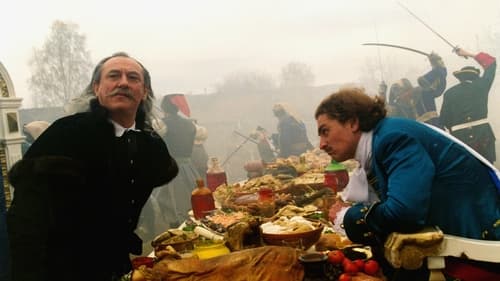
Marshall Zhukov
'A Prayer for Hetman Mazepa' unfolds during an interesting era in the history of Eastern Europe when Russia, under Peter the Great, and Sweden, under King Charles XII, struggled for power; the Ukraine was the pawn in the middle. In 1709, Ivan Mazepa, Hetman of Ukraine, which was part of the Russian Empire, signed a pact with the Swedish king promising to support Sweden in its war against Russia provided that the Ukraine was given its independence.

Director of Photography
'A Prayer for Hetman Mazepa' unfolds during an interesting era in the history of Eastern Europe when Russia, under Peter the Great, and Sweden, under King Charles XII, struggled for power; the Ukraine was the pawn in the middle. In 1709, Ivan Mazepa, Hetman of Ukraine, which was part of the Russian Empire, signed a pact with the Swedish king promising to support Sweden in its war against Russia provided that the Ukraine was given its independence.

Screenplay
'A Prayer for Hetman Mazepa' unfolds during an interesting era in the history of Eastern Europe when Russia, under Peter the Great, and Sweden, under King Charles XII, struggled for power; the Ukraine was the pawn in the middle. In 1709, Ivan Mazepa, Hetman of Ukraine, which was part of the Russian Empire, signed a pact with the Swedish king promising to support Sweden in its war against Russia provided that the Ukraine was given its independence.

Director
'A Prayer for Hetman Mazepa' unfolds during an interesting era in the history of Eastern Europe when Russia, under Peter the Great, and Sweden, under King Charles XII, struggled for power; the Ukraine was the pawn in the middle. In 1709, Ivan Mazepa, Hetman of Ukraine, which was part of the Russian Empire, signed a pact with the Swedish king promising to support Sweden in its war against Russia provided that the Ukraine was given its independence.
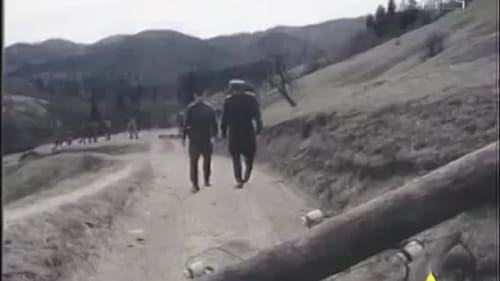
Screenplay
The film tells about the last stage of the struggle of the Ukrainian Insurgent Army against the NKVD squads. Events occurring after the end of World War II.
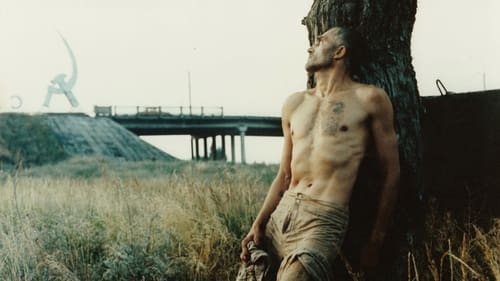
Cinematography
A convict is forced to hide within a model of a hammer and sickle. Here a tragic romance ensues between the convict and woman worker; which is spoilt by the woman's jealous young son. The convict is then forced to undergo a tragic bid for freedom which ends with the beauty of swans contrasted with the imprisoned convicts and the hopeful but ultimately tragic wait by the woman for her lover.

Director
A convict is forced to hide within a model of a hammer and sickle. Here a tragic romance ensues between the convict and woman worker; which is spoilt by the woman's jealous young son. The convict is then forced to undergo a tragic bid for freedom which ends with the beauty of swans contrasted with the imprisoned convicts and the hopeful but ultimately tragic wait by the woman for her lover.

Director of Photography
Vasyl Vilgota raised two sons. One of them died on the fronts of the Second World War, defending the homeland, and the second served as Hilfspolizei. Vilgota himself also helped the Nazis. Although he carefully hides this fact of his biography, there is one man who knows the truth about him.

Screenplay
Vasyl Vilgota raised two sons. One of them died on the fronts of the Second World War, defending the homeland, and the second served as Hilfspolizei. Vilgota himself also helped the Nazis. Although he carefully hides this fact of his biography, there is one man who knows the truth about him.

Director
Vasyl Vilgota raised two sons. One of them died on the fronts of the Second World War, defending the homeland, and the second served as Hilfspolizei. Vilgota himself also helped the Nazis. Although he carefully hides this fact of his biography, there is one man who knows the truth about him.
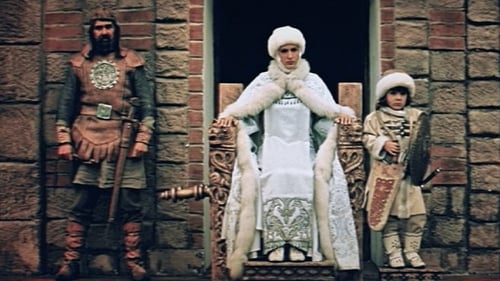
Writer
The film is a poetic adaptation of a series of stories (oral and written) about Princess Olha of Kyivan Rus' (Ukraine-Rusʹ) at the start of the 11th century. Inspired by chronicles and folk legends this is a story of a common girl Olha who married Prince Ihor and became his successor on the throne after his murder and one of the most remarkable political leaders in early medieval European history. She converted to Christianity and brought her realm into Europe.

Director
The film is a poetic adaptation of a series of stories (oral and written) about Princess Olha of Kyivan Rus' (Ukraine-Rusʹ) at the start of the 11th century. Inspired by chronicles and folk legends this is a story of a common girl Olha who married Prince Ihor and became his successor on the throne after his murder and one of the most remarkable political leaders in early medieval European history. She converted to Christianity and brought her realm into Europe.

Screenplay
Based on the works of Nikolai Gogol - 'The Old World Landowners', 'The Tale of How Ivan Ivanovich Quarreled with Ivan Nikiforovich', 'Ivan Fyodorovich Shponka and His Aunt'.
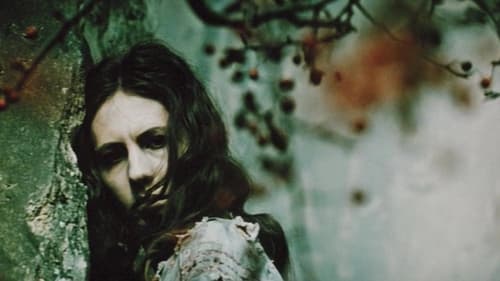
Director of Photography
Mavka, a water nymph, loves Lukash, a country youth. Their brief happiness ends when Lukash is forced to marry the shrewish Kilina. The Spirit of the Forest turns Lukash into a wolf as punishment for his infidelity. The strength of Mavka's love breaks the spell, but Kilina curses the nymph, transforming her into a weeping willow. This beautiful and tragic story is based on a play written in 1912 by Lesya Ukrainka, a Ukrainian poet, writer and political, civil and female activist, and includes mythological characters taken from Ukrainian folklore.

Screenplay
Mavka, a water nymph, loves Lukash, a country youth. Their brief happiness ends when Lukash is forced to marry the shrewish Kilina. The Spirit of the Forest turns Lukash into a wolf as punishment for his infidelity. The strength of Mavka's love breaks the spell, but Kilina curses the nymph, transforming her into a weeping willow. This beautiful and tragic story is based on a play written in 1912 by Lesya Ukrainka, a Ukrainian poet, writer and political, civil and female activist, and includes mythological characters taken from Ukrainian folklore.

Director
Mavka, a water nymph, loves Lukash, a country youth. Their brief happiness ends when Lukash is forced to marry the shrewish Kilina. The Spirit of the Forest turns Lukash into a wolf as punishment for his infidelity. The strength of Mavka's love breaks the spell, but Kilina curses the nymph, transforming her into a weeping willow. This beautiful and tragic story is based on a play written in 1912 by Lesya Ukrainka, a Ukrainian poet, writer and political, civil and female activist, and includes mythological characters taken from Ukrainian folklore.

Writer
A story of two delinquent boys at a boarding school, struggling to cope with fathers who abandoned them, and retreating into fantasy.

Director
A story of two delinquent boys at a boarding school, struggling to cope with fathers who abandoned them, and retreating into fantasy.

Director
Drama about Aleksandra Avramovna Derevskaya (1902-1959), who, between the two wars - the Civil and Great Patriotic War, raised 48 orphan children of different nationalities. After her death, each birthday, her large family gathers at the table, to preserve the tradition of serving baked potatoes, which was a favorite dish of the household head.

Герасим, литейщик
The script about loneliness, conformity and the impossibility of creative realization scared the editorial censorship at the studio, and then at Derzhkino. A lot of claims were made against him. The demands for amendments and endless additions and rewrites by the authors lasted for about a year. The original version of the title "Na pokhony!" ("To bow down!") was replaced by "To Dream and to Live". According to Pylyp Ilyenko, the director's eldest son, this name appeared "as a result of censor pressure." Censorship stopped the tape 40 times: at the stage of the literary script, director's, during film tests (the actors were not approved), filming, etc. The film catastrophically fell apart into fragments, into masterfully filmed, but unrelated scenes. The director called the finished version a "dead film".

Director
The script about loneliness, conformity and the impossibility of creative realization scared the editorial censorship at the studio, and then at Derzhkino. A lot of claims were made against him. The demands for amendments and endless additions and rewrites by the authors lasted for about a year. The original version of the title "Na pokhony!" ("To bow down!") was replaced by "To Dream and to Live". According to Pylyp Ilyenko, the director's eldest son, this name appeared "as a result of censor pressure." Censorship stopped the tape 40 times: at the stage of the literary script, director's, during film tests (the actors were not approved), filming, etc. The film catastrophically fell apart into fragments, into masterfully filmed, but unrelated scenes. The director called the finished version a "dead film".

Director
The movie takes us through the trials and tribulations of Petar I Petrovic, the man who united Montenegro in the 18th century and led them in the Battle of Krusi against a huge Turkish army to return victorious and pave the first path towards economic development.

Writer
A family struggles to survive in an area that was claimed as part of Rumania, Poland and the Ukraine, all within a short span of time. When World War II comes, various family members choose different masters; some even choose to work for the Soviets. War, struggle, marriages, births, deaths--all these events punctuate the story of this large family.

Director
A family struggles to survive in an area that was claimed as part of Rumania, Poland and the Ukraine, all within a short span of time. When World War II comes, various family members choose different masters; some even choose to work for the Soviets. War, struggle, marriages, births, deaths--all these events punctuate the story of this large family.

Writer
Piotr, un granjero pobre, ama a Pidorka, cuyo padre quiere casarla con un hombre rico. Para conseguirla, Piotr hará un pacto con el demonio Bassavriuk: oro a cambio de la flor del helecho.

Director
Piotr, un granjero pobre, ama a Pidorka, cuyo padre quiere casarla con un hombre rico. Para conseguirla, Piotr hará un pacto con el demonio Bassavriuk: oro a cambio de la flor del helecho.

Screenplay
An intimate drama set in a remote railway station that grows into a tragedy of the whole generation and epoch, based on a Gorki story.
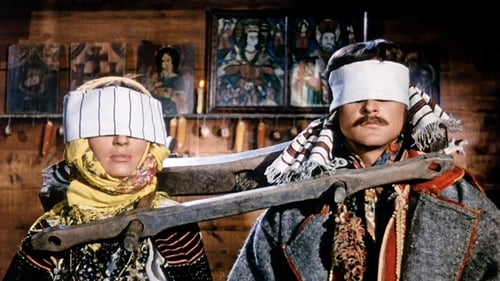
Cinematography
Desde su más tierna infancia, Ivan y Marichka viven un apasionado y romántico amor a pesar de la enemistad que acaba enfrentando a sus familias. Incluso cuando se ven obligados a separarse, hay en el cielo una estrella que permite que se acuerden el uno del otro.

Director
A parable centering on an old man who lives a secluded life in the desert, alone with only his memories and photographs. His wellspring, once a source of joy and hope for thirsty passersby, is now rarely used. No longer able to find comfort in his memories, he turns all his photographs to face the walls.

Timofey Suvernev

Director of Photography
An old fisherman spends his days waiting to hear from his son who left the village long time ago.

Cinematography










